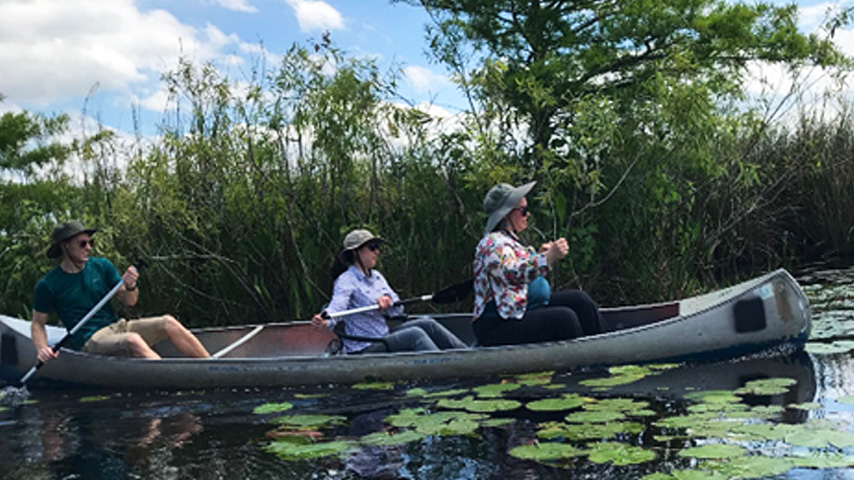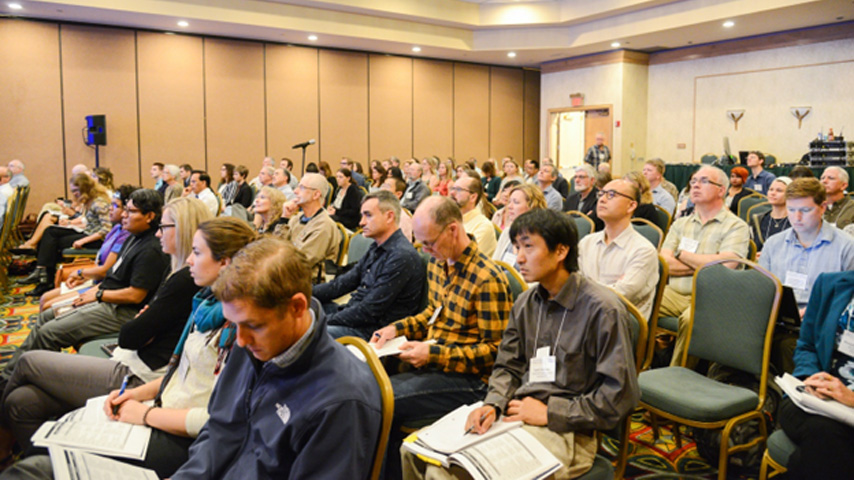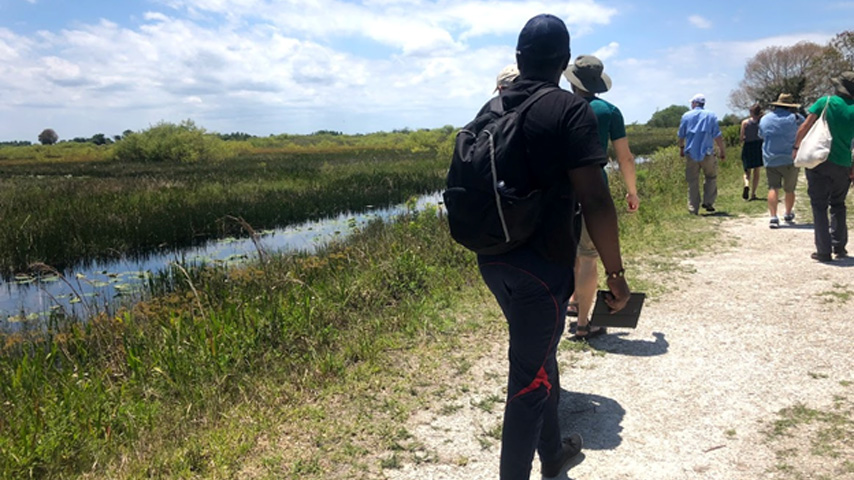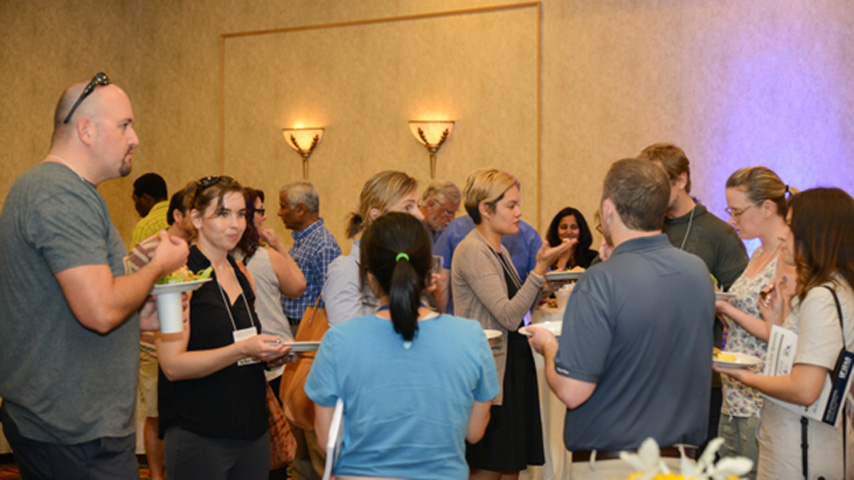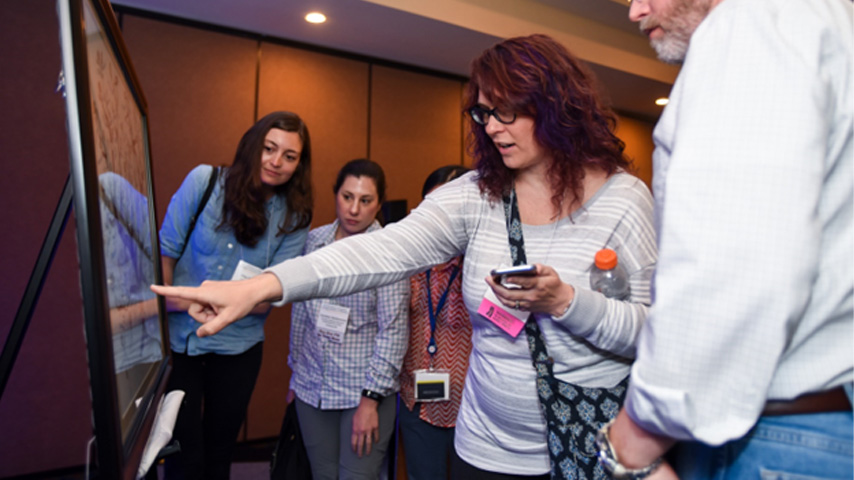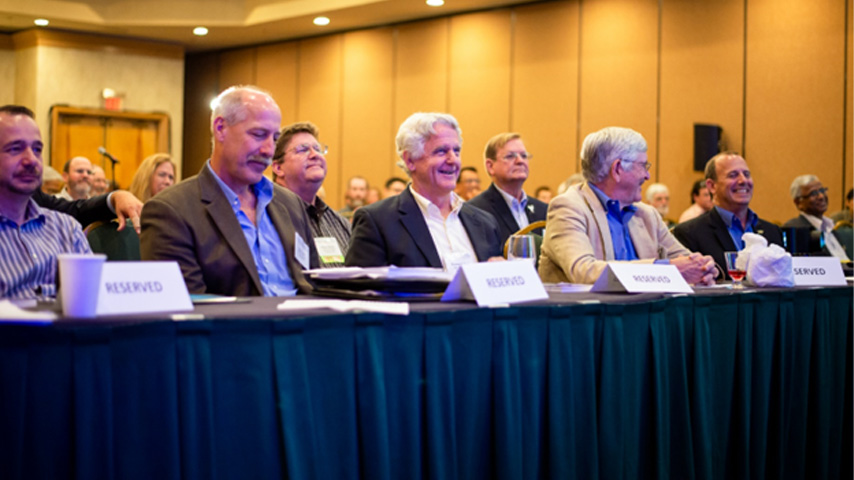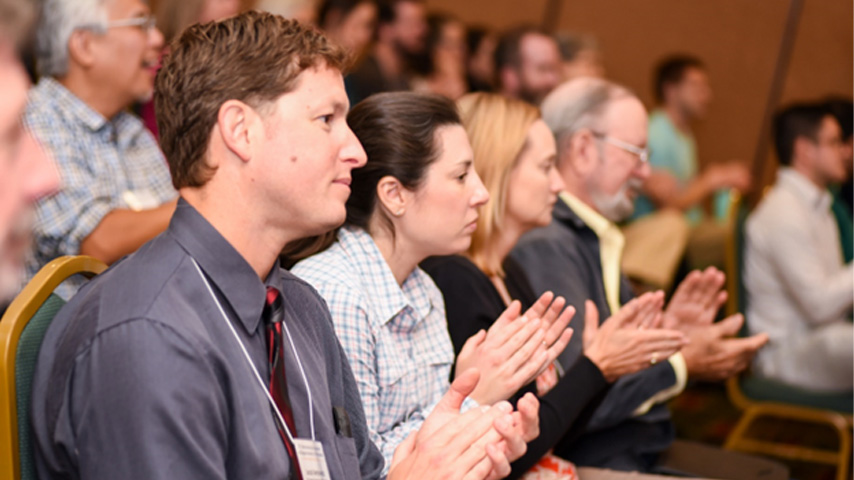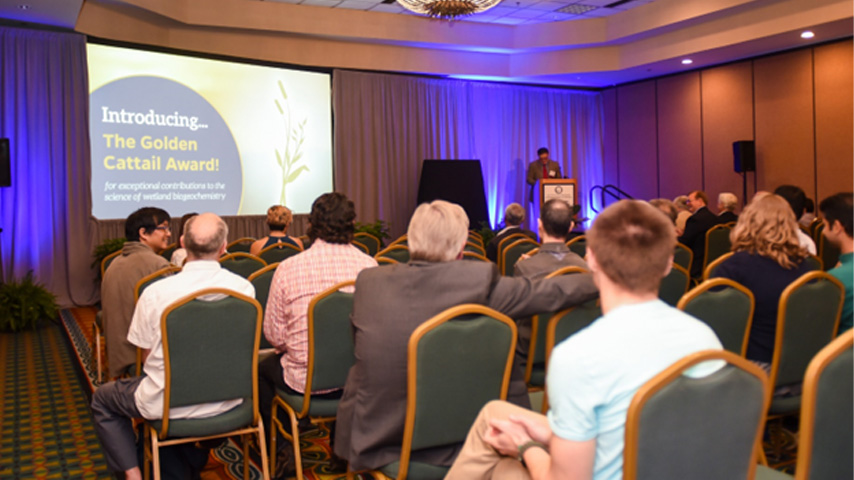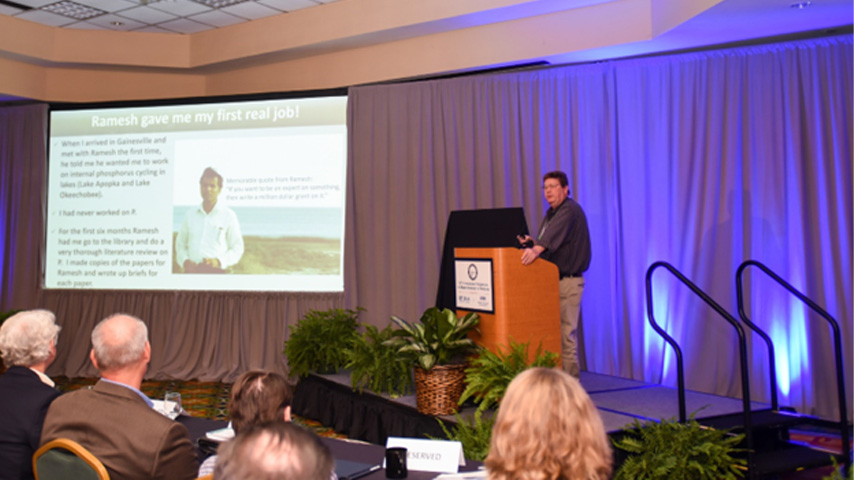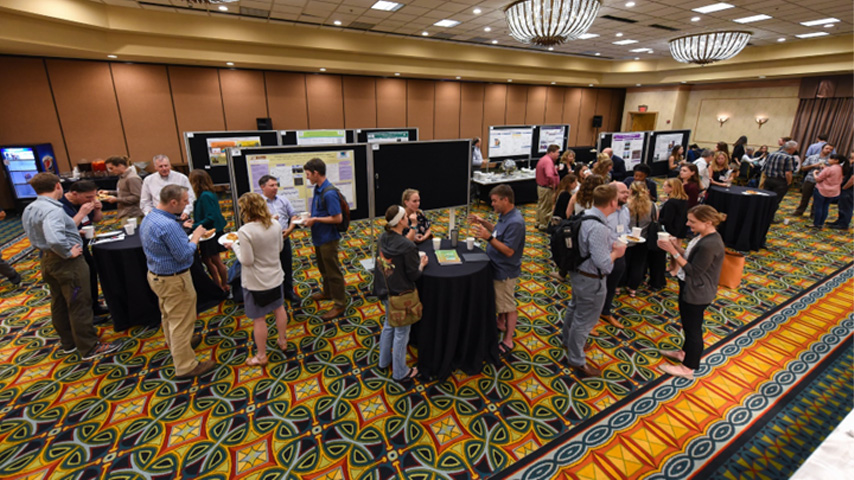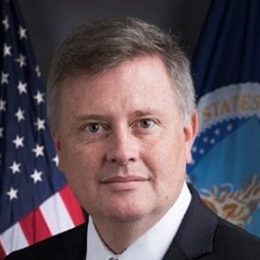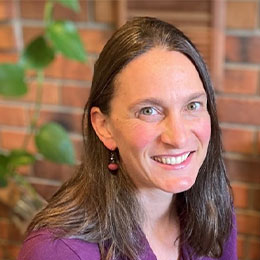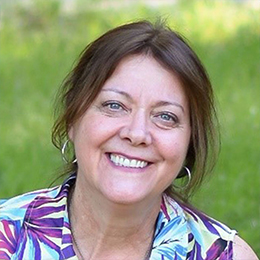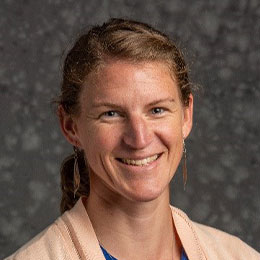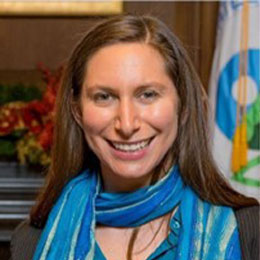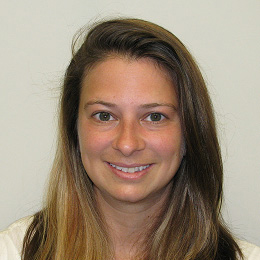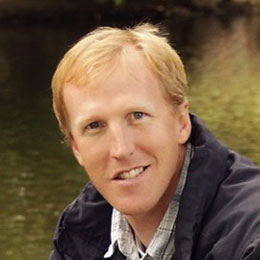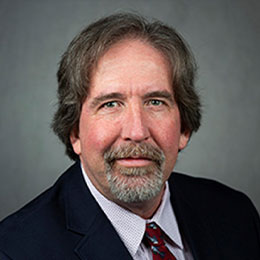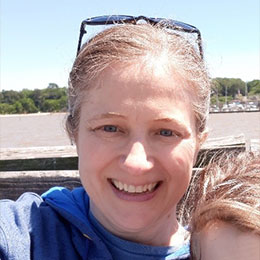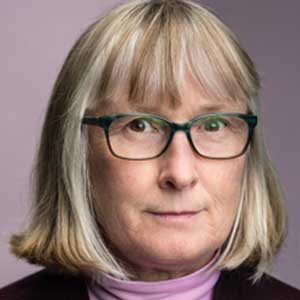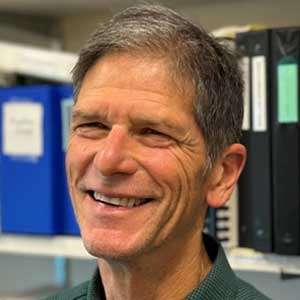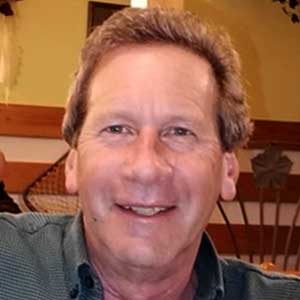Golden Cattail Award

The Golden Cattail Award was created to honor individuals among us who have made exceptional contributions to the study of wetland biogeochemistry throughout their professional career.
2025 Recipient
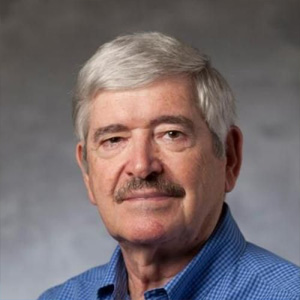
Curtis J. Richardson (2025)
At the 2025 symposium, the award proudly honored Dr. Curtis J. Richardson, a trailblazer in wetland science and a respected leader in applied ecology. Dr. Richardson is a Professor of Resource Ecology and the Founding and First Director of the Duke University Wetland Center in the Nicholas School of the Environment. He holds degrees from the State University of New York and the University of Tennessee and has dedicated his career to unraveling the complexities of ecosystem responses to large-scale environmental challenges such as climate change, pollution, flooding, and nutrient dynamics.
Dr. Richardson's research has revolutionized our understanding of phosphorus dynamics in wetlands, environmental stress impacts on plant communities, and ecosystem functions and services. His work is driven by a mission to develop innovative ecological solutions to pressing environmental issues, with the ultimate goal of providing predictive models and strategies for effective ecosystem management.
His recent research highlights include:
- Pioneering approaches to wetland restoration and its influence on water quality and nutrient biogeochemical cycles.
- Creating ecosystem metrics to evaluate wetland restoration success.
- Investigating the effects of nanomaterials on wetland and stream processes.
- Defining ecological thresholds along environmental gradients.
- Advancing wetland restoration in the coastal southeastern United States.
- Establishing an outdoor wetland and stream research and teaching laboratory in Duke Forest.
- Exploring differential nutrient limitation (DNL) to overcome nitrogen or phosphorus constraints across trophic levels in wetlands.
- Studying carbon sequestration in North Carolina’s pocosins.
Beyond his groundbreaking research, Dr. Richardson has overseen the primary analytical lab at Duke University’s Nicholas School, fostering collaboration and mentorship among students and faculty. His contributions extend to leadership roles, including serving as President of the Society of Wetland Scientists (1987-1988) and Chair of the Nicholas School Division of Environmental Sciences and Policy. He is a Fellow of the American Association for the Advancement of Science, the Society of Wetland Scientists, and the Soil Science Society of America. Additionally, Dr. Richardson has been consistently recognized in Who’s Who in Science since 1989 and has contributed extensively to editorial review committees for scientific journals.
The Golden Cattail Award is a testament to Dr. Richardson’s extraordinary contributions to wetland science and his enduring impact on environmental research and education. We are honored to recognize him as the 2025 recipient.
Previous Recipients
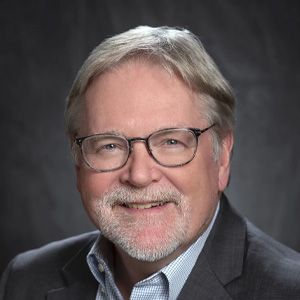
Robert Twilley (2021)
At the 2021 symposium, the Golden Cattail Award was presented to Dr. Robert Twilley, former executive director of the Louisiana Sea Grant College Program and Vice President for Research and Economic Development at Louisiana State University (LSU).
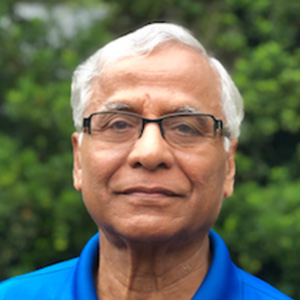
K. Ramesh Reddy (2018)
The first inaugural award was presented to Dr. K. Ramesh Reddy in recognition of more than 40 years of extensive contributions to the foundation of our science.
- USEPA Science Advisory Board - Ecological Process and Effects Committee (EPEC) 2014-15.
- USEPA Science Advisory Board - Panel for the Review of the EPA Water Body Connectivity Report 2013-14.
- International Atomic Energy Agency - Expert Mission to Guatemala, March 3-9, 2013.
- Member, U.S. National Research Council Committee – Everglades Restoration, National Academy of Sciences - 2007-2014.
- USEPA, Science Advisory Board’s Ecological Processes and Effects Committee -2012-2015.
- Member of National Committee to develop nutrient criteria for wetland ecosystems, USEPA.
- Member, U.S. National Committee on Soil Science, National Academy of Sciences 2003-08.
- Member of the National Environment Research Council and the Global Environmental Research Committee of the Royal Society, Feb 8-10, 2010, London.
